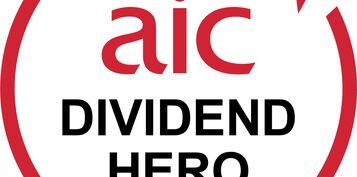Investment trusts prove their worth to income seekers
Highlighting the AIC dividend heroes, David Prosser explains the benefits of the closed-ended structure for consistent dividend payments.

Amid the coronavirus gloom, City of London Investment Trust has just offered a rare ray of sunshine. The fund has announced its latest annual dividend will be 2.2% higher than last time around.
You heard that right. Although companies all around the world have been cutting back on shareholder pay-outs – in the UK more than half the companies in the FTSE 100 Index have cancelled dividends altogether – City of London has managed to increase its dividend.
Nor is it alone. In fact, since the Covid-19 pandemic began, 99% of investment companies invested in equities have been able to maintain or increase the income they pay to shareholders. The AIC’s data shows that just two out of 182 investment companies investing in equities have reduced their dividends.
It is worth celebrating this achievement. Back in the spring, when investment company supporters pointed out that the structure of closed-ended funds provides protection for income seekers during this sort of crisis, they were met with a great deal of scepticism. Such claims would be sorely tested during a market shock of this scale, cynics warned. Yet a few months on, investment companies are living up to their promise.
Safety in reserves
How have investment companies pulled off this success? Well, much as their managers might enjoy the idea that they have discovered the secrets of alchemy, the truth is rather more prosaic. Closed-ended funds have a vital attribute that is crucial in times such as these. Unlike other types of fund, they are entitled to keep back some of the income their portfolios earn in good years – up to 15% - in order to seed dividend reserve funds. When their income dries up, they can draw on these reserve funds to keep pay-outs to shareholders flowing.
Indeed, this is the secret sauce of the AIC’s Dividend Heroes – a ranking of 19 investment companies that have raised their dividends in each and every year for many decades. The list includes four funds whose records go back more than 50 years and a further nine funds who have increased their dividends in every year for more than 30 years.
However, it is not only these income-obsessed funds that are exploiting the flexibility that reserve funds offer. As the AIC’s statistics show, investment companies across the entire equity sector are able to make use of these facilities in order to get through tough times.
In extremis, investment companies have another trick up their sleeves too. Where shareholders give their approval, they are allowed to make income distributions financed from capital. For those investors who need their income to keep flowing at all costs, this can be a vital lifeline.
Is this sustainable?
Clearly, investment companies cannot keep doing this forever. Eventually, dividend reserve funds will run dry and many funds will not feel comfortable with making payments from capital. This may not be what their shareholders want either. If the Covid-19 crisis endures – and companies are unable to restore their dividends – investment companies will one day succumb to the inevitable.
The good news, however, is that day remains some way off. Analysts have run the slide rules over investment companies several times in recent months and concluded that many funds have sufficient reserves to at least maintain their dividends this year and next. For example, one analyst looked at the 17 investment companies in the Equity Income sector, where funds specialise in paying above-average income; it found that even if dividend payments fell by 30% both this year and next, at least eight of them would still be able to raise dividends by at least 3% a year.
Investment companies are not a free lunch during these turbulent times. Their share prices have been volatile this year, in line with the rest of the stock market. And as we have seen, the income they pay cannot be relied upon forever. So far at least, however, these funds are delivering what they have promised, protecting income-focused investors from the worst of the carnage in the markets.






